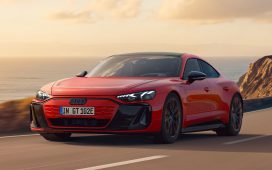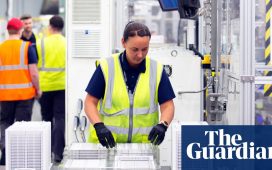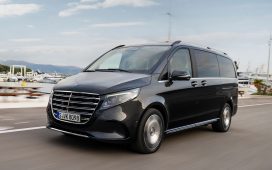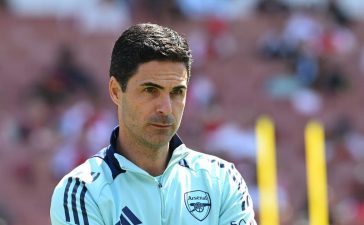Rolls-Royce Motor Cars has said it will invest £300m in expanding its Goodwood factory in West Sussex to meet the growing demand for bespoke upgrades, after the luxury carmaker recorded its third-highest annual sales in 2024.
The investment will extend the luxury carmaker’s manufacturing facility as it gradually moves away from V12 petrol engines to battery electric vehicles, as well as increasing its capacity to fulfil the whims of some of the world’s richest people.
The company is enjoying a boom in demand for one-of-a-kind variations required by super-wealthy clients willing to spend more than £500,000 on average on a single car. Those embellishments range from solid gold bonnet sculptures or mother-of-pearl art works, to holographic paint finishes and LED lights in the ceiling that mimic the stars on a particular date: one client last year asked for their dog’s birthday.
Rolls-Royce, owned by Germany’s BMW since 2003, said it sold 5,712 cars last year, although sales were down 5% compared with the 6,032 sold in 2023, its highest ever.
Chris Brownridge, Rolls-Royce’s chief executive since late 2023, said it was “inevitable over time there may be some additional jobs” as the company sought to meet customers’ demands. “Rolls-Royce is in a very strong position” despite slightly lower demand in China he said, in an interview at a luxury hotel in London.
The marque has seen increased sales in recent years. It has grown from 300 employees at Goodwood when BMW took over to more than 2,500. During the pandemic it benefited from wealthy customers spending more money on luxury goods as opposed to travel and luxury services.
The Rolls-Royce investment will be welcomed by the British automotive industry, after the closure of several factories in the last five years, including a Ford engine plant in Bridgend, south Wales, and a Honda factory in Swindon. Stellantis, the owner of brands including Fiat and Peugeot, in November announced a plan to close its Vauxhall van factory in Luton.
Rolls-Royce is not troubled by the same pressures as the broader automotive industry. Brownridge, who previously led BMW in the UK, said the company does not “measure our success based on how many we make, because our raison d’être is about creating masterpieces” rammed full of bespoke options.
The company said the value of expensive extras for each car had increased by 10% in 2024 compared with 2023. The cost of bespoke vehicles is typically a quarter higher than standard models, making them much more profitable.
The top-selling model was the Cullinan, the nearly three-tonne vehicle that was Rolls-Royce’s first foray into hugely popular SUVs. Second was the Spectre, the company’s first electric vehicle, followed by the Ghost, its least expensive model, albeit with a base price of approximately £280,000 – more than seven times the average annual wage in the UK.
Rolls-Royce and other luxury brands have been slower than most carmakers to make electric cars, but Brownridge said the Spectre “has been hugely successful for us”.
He said the smooth acceleration offered by electric motors was “the waftability turned up to another level”, referring to the term the company uses to describe its cars’ movement.
Rival luxury carmaker Bentley, owned by Germany’s Volkswagen Group, in November delayed the end of its petrol cars until 2035, five years later than initially planned. It said the decision was influenced by lagging charging infrastructure and a lack of appetite for electric vehicles among consumers.
However, Brownridge said Rolls-Royce was sticking to its plans to phase out its V12 petrol engines in 2030.
“The rationale behind buying a regular electric car is very different to buying a Rolls-Royce, which is a luxury handcrafted motorcar,” he said. “But when you apply a sophisticated electric powertrain, it makes a stronger product.”
Rolls-Royce’s largest sales region is the US, where the president-elect, Donald Trump, is threatening to impose tariffs on all goods imports. However, Brownridge said Rolls-Royce’s global demand prevented it from being dependent on any single market.










